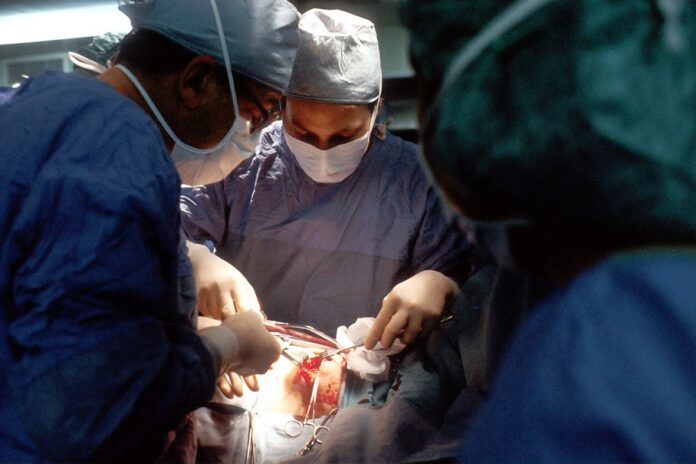Using appropriate enzymes, researchers removed ABO blood group antigens from donor kidney and lung ex-vivo, to overcome ABO blood group mismatch. This approach can solve organ shortage by improving availability of donor organs for transplantation considerably and make the process of organ allocation fairer and more efficient.
In a recently published study, researchers used an alpha-galactosidase enzyme from Bacteroides fragilis and successfully removed type B blood group antigens from human kidneys (that had remained unused for transplantation) during ex-vivo perfusion thereby converting the blood group of the kidney to universal donor O. This is the first case of whole organ ABO blood group conversion in humans by enzymatic removal of type B blood group antigens1.
In another similar study on lungs, scientists converted blood group A lungs to blood group O lungs during ex-vivo lung perfusion using two enzymes, FpGalNAc deacetylase and FpGalactosaminidase. No significant changes in the health of lung including antibody-mediated injury were observed2,3.
Just like blood transfusion, ABO blood group matching is the key factor in the allocation of organs among the prospective recipients. Presence of A and/or B antigens in the donor organs makes allocation selective and restrictive. As a result, allocation is inefficient. Ability to convert the ABO blood group of the organs ex-vivo to universal donor by removing A and/or B antigens would expand the pool of ABO compatible donor organs to solve the problem of organ shortage and enhance fairness in allocation of organs for transplantation.
Several approaches (such as antibody removal, splenectomy, anti-CD20 monoclonal antibody, and intravenous immunoglobulin) have been tried in the past to improve the success of transplant however ABO incompatibility had remained an issue. Suggestion to enzymatically eliminate A/B antigens came in 2007 when researchers partially reduced A/B antigens in baboon using ABase enzyme4. Shortly after, they were able to remove 82% of A antigen and 95% of B antigen in human A/B red blood cells using ABase5.
The approach of enzymatic A/B antigen removal from the donor organs has come up age to for kidney and lung transplants. However, there does is little evidence in literature of applicability of this approach to liver transplants. Instead, desensitisation6,7 with antibodies seems to be holding promise for enhancing success as well as pool of liver transplants.
***
References:
- S MacMillan, SA Hosgood, ML Nicholson, O004 Blood group antigen removal of a human kidney using ex-vivo normothermic machine perfusion technology, British Journal of Surgery, Volume 109, Issue Supplement_4, August 2022, znac242.004, https://doi.org/10.1093/bjs/znac242.004 | https://academic.oup.com/bjs/article/109/Supplement_4/znac242.004/6648600
- Wang A., et al 2021. Developing Universal ABO Blood Type Donor Lungs with Ex Vivo Enzymatic Treatment: A Proof of Concept Feasibility Stud. The Journal of Heart and Lung Transplantation. Volume 40, Issue 4, Supplement, s15-s16, april 01, 2021. DOI: https://doi.org/10.1016/j.healun.2021.01.1773
- Wang A., et al 2022. Ex vivo enzymatic treatment converts blood type A donor lungs into universal blood type lungs. Science Translational Medicine. 16 Feb 2022. Vol 14, Issue 632. DOI: https://doi.org/10.1126/scitranslmed.abm7190
- Kobayashi, T., et al 2007. Alternative Strategy for Overcoming ABO Incompatibility. Transplantation: May 15, 2007 – Volume 83 – Issue 9 – p 1284-1286. DOI: https://doi.org/10.1097/01.tp.0000260634.85690.c4
- Kobayashi T., et al 2009. Removal of blood group A/B antigen in organs by ex vivo and in vivo administration of endo-ß-galactosidase (ABase) for ABO-incompatible transplantation. Transplant Immunology. Volume 20, Issue 3, January 2009, Pages 132-138. DOI: https://doi.org/10.1016/j.trim.2008.09.007
- Dogar AW et al 2022. ABO incompatible living donor liver transplant with antibody titer of 1:4: First case report from Pakistan. Annals of Medicine and Surgery Volume 81, September 2022, 104463. DOI: https://doi.org/10.1016/j.amsu.2022.104463
- Akamatsu N., et al 2021. Rituximab Desensitization in Liver Transplant Recipients With Preformed Donor-specific HLA Antibodies: A Japanese Nationwide Survey. Transplant Direct. 2021 Aug; 7(8): e729. Published online 2021 Jul 16. DOI: https://doi.org/10.1097/TXD.0000000000001180
***






































